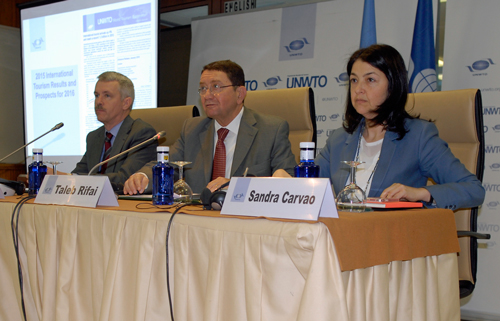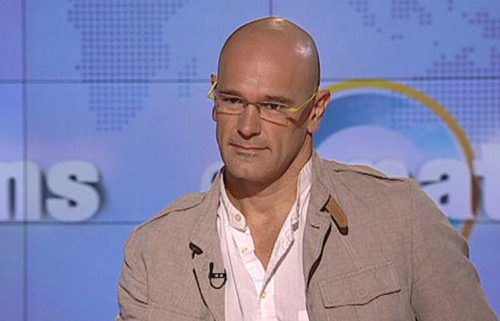Taleb Rifai, in the Centre, during the presentation./ Photo: A.R.
Alberto Rubio. Madrid
The effect of terrorism on tourism is the principal concern of the United Nations World Tourism Organisation (UNWTO), according to what its Secretary-General, Taleb Rifai, said yesterday during the presentation of the results of the sector for 2015.
In spite of 2015 reaching a record number of 1.184 millon travellers throughout the world and the prospects for 2016 promising a global growth of around 4%, Rafai implied that terrorism may cause some countries to adopt restrictive measures, tightening border controls or reintroducing compulsory visas.
In his opinion, such restrictions would be a mistake as they would mean slowing down an activity that is ” beneficial for the whole world, one that continues to grow in spite of all the challenges”, and which, in addition, is more than mere business: “tourism is development”, he stated.
According to Rifai, “we have to continue travelling, taking more precautions and taking more security measure”, but “we must not allow ourselves to be swayed by panic because this is exactly what the terrorists want”.
The UNWTO Secretary-General Rifai pointed out that attacks by extremists are a global threat and therefore “the response must be a global one”. Therefore, he considers that the international community must share all means at its disposal -intelligence, technology, security-in order to win this battle.
As for the figures for last year, Rifai said that the 1.184 million tourists implied a world increase of 4,4%, in other words, 52 million more than in 2014. This means that 2015 was the sixth consecutive year of growth. Only Africa, as a whole, registered a negative growth rate (-3,3%) and the biggest increase in travellers occurred in Europe with 5%, followed by America (4,9%), Asia-Pacific (4,8%) and the Middle East (3,1%).







